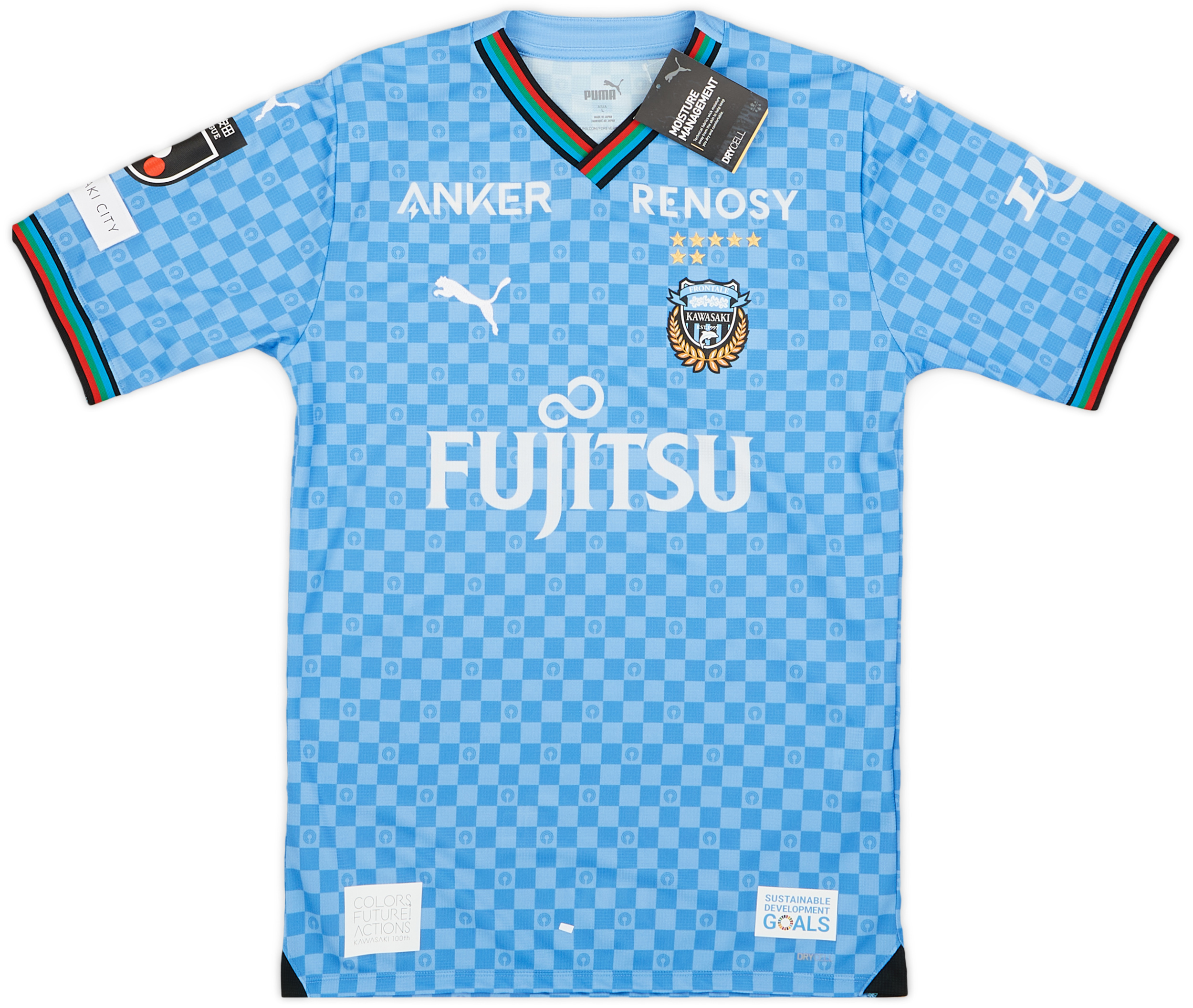Kawasaki Frontale
Introduction Kawasaki Frontale is a premier professional football club based in Kawasaki, Kanagawa Prefecture, Japan. Established in 1955, the club has since evolved into a formidable force in Japanese football, known for its attacking style of play and a rich tapestry of talented players. Embracing its identity as a community-driven club, Kawasaki Frontale has become […]
1999-00 Kawasaki Frontale Away L/S Shirt #6 - 8/10 - (XL)
237.99£ - ca: €281
2001 Kawasaki Frontale GK Shirt - 8/10 - (L)
207.99£ - ca: €245
2024 Kawasaki Frontale Home Shirt
94.99£ - ca: €112
2012-13 Kawasaki Frontale Home Shirt #24 - 7/10 - (L)
94.99£ - ca: €112
Introduction
Kawasaki Frontale is a premier professional football club based in Kawasaki, Kanagawa Prefecture, Japan. Established in 1955, the club has since evolved into a formidable force in Japanese football, known for its attacking style of play and a rich tapestry of talented players. Embracing its identity as a community-driven club, Kawasaki Frontale has become a symbol of pride for its local supporters, often referred to as “Frontrunners.” The club’s deep-rooted connection to the city and its commitment to excellence sets it apart in the highly competitive landscape of Asian football.
Club History
Kawasaki Frontale began its journey in 1955 as Fujitsu SC, a team formed by the Fujitsu Corporation to promote sports among its employees. After a series of transformations, the club was rebranded as Kawasaki Frontale in 1997, following the club’s shift to a more global approach and the introduction into the J.League. The name “Frontale,” which means “front” in Italian, symbolizes the team’s ambition to lead within the sport.
Key moments in its history include being promoted to the J.League in 2004 after impressive performances in lower divisions. The club steadily climbed the ranks, showcasing attacking football characterized by flair and creativity. In recent years, Kawasaki Frontale has consistently established itself among the top teams in Japan, reflecting the club’s commitment to development and competitive spirit.
Achievements
Kawasaki Frontale has accumulated a range of accolades that underline its status in Japanese football. The club clinched its first J.League trophy in 2017, marking a significant milestone in its history. Since then, the team has continued to impress, securing the J.League championship in 2018, 2020, and 2021. Notably, the 2018 season was particularly remarkable, as Kawasaki Frontale finished as champions with 83 points, showcasing their dominance by winning 25 out of 34 matches.
In terms of domestic cups, Kawasaki Frontale has lifted the Emperor’s Cup once, in 2019, which added a prestigious title to their cabinet. The club’s consistent performances have also earned them a spot in various AFC competitions, highlighting their growing influence in continental football. The team’s success at both domestic and international levels cements its reputation as one of Japan’s footballing giants.
Significant Players and Matches
Over the years, Kawasaki Frontale has been home to an array of talented players who have made significant contributions to the club’s success. Key figures such as Yu Kobayashi, who is considered one of the most prolific strikers in the team’s history, and Akihiro Ienaga, known for his creativity in midfield, have become fan favorites. Additionally, the impact of Brazilian star Leandro Damião, who joined the team in 2020, added international flair and experience to the attacking lineup.
Several memorable matches have defined the club’s journey. The 2017 J.League Championship-clinching match against Cerezo Osaka stands out; Kawasaki Frontale secured a thrilling 2-1 victory that solidified their place at the top. Another landmark game was the 2019 Emperor’s Cup final, where they triumphed over Gamba Osaka, winning 1-0 in a tense encounter, thus ending a long wait for a cup title.
Cultural Impact
Kawasaki Frontale has made a lasting impact on the local culture and community in Kawasaki. The club’s fanbase, known for their unwavering support, plays a pivotal role in the vibrant atmosphere during matches. The “Frontale Spirit” represents the dedication and passion of the fans, who regularly gather at the Todoroki Athletics Stadium, creating a spectacle of color and noise that truly encapsulates the essence of Japanese football culture.
Moreover, the club actively engages with the community through various outreach programs, youth academy initiatives, and social contributions, fostering a deeper bond between the club and its fans. This commitment to local culture reinforces Kawasaki Frontale’s identity as not just a football club, but as a community institution that resonates with its supporters.
Conclusion
Kawasaki Frontale’s ascent in Japanese football is a testament to its rich history, achievements, and the influence of its players. The club’s dedication to excellence on and off the pitch makes it a cornerstone of the local community in Kawasaki. As they continue to strive for success, Kawasaki Frontale not only shapes footballing narratives in Japan but also inspires the next generation of footballers and fans alike. With its remarkable journey, the club remains a significant figure in the history of Asian football.



